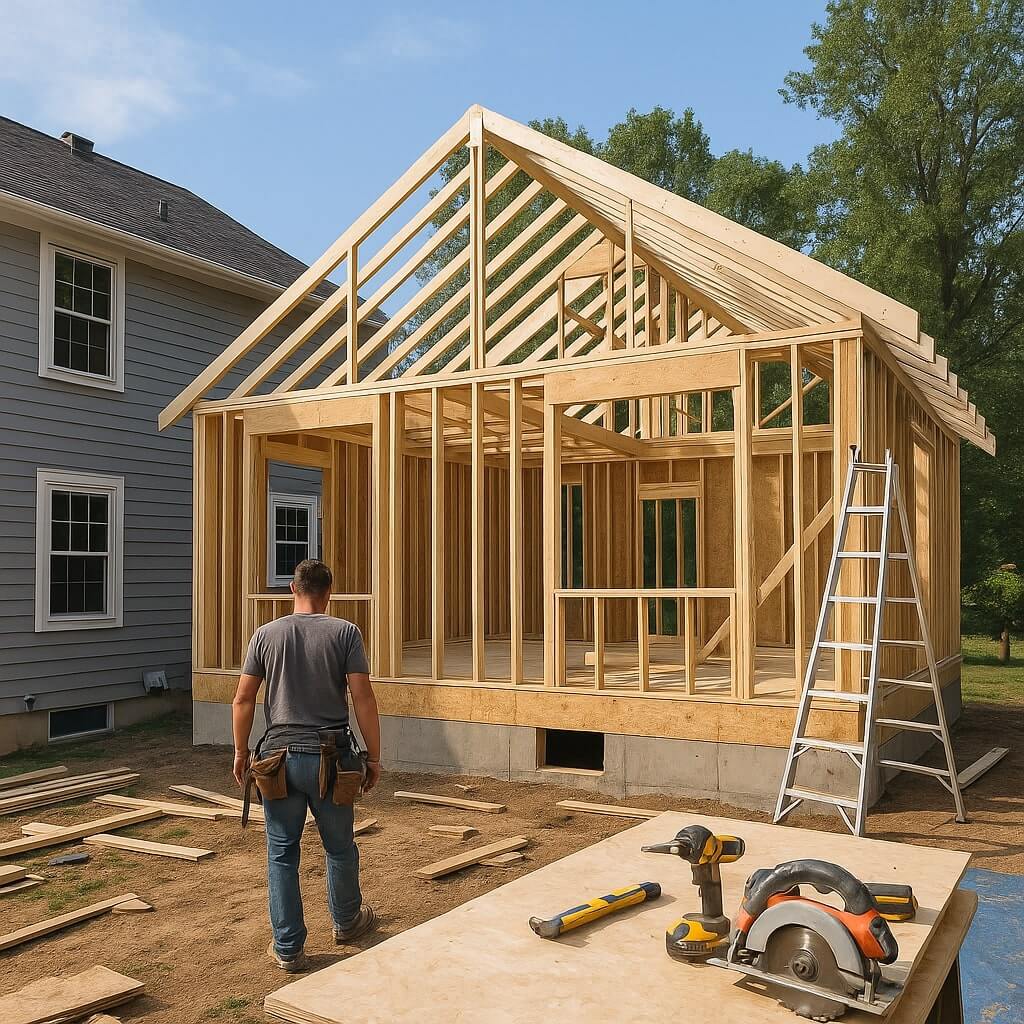When planning home additions in Denver, you’ve got to navigate a maze of local building codes and permits. It’s not just about expanding your space; it’s about doing it right, within your budget and timeline. You’ll also want to think carefully about design choices and materials that stand the test of time. But have you considered how energy efficiency can play a role in your project? Let’s explore these essential tips to guarantee your home addition is a success.
Key Takeaways
- Research Denver’s specific building codes and permits to ensure compliance and avoid delays in your home addition project.
- Create a detailed budget that includes all potential costs and unexpected expenses to maintain financial flexibility.
- Choose a design style that complements your home while selecting durable materials for longevity and aesthetic appeal.
- Incorporate energy-efficient features like proper insulation and energy-efficient windows to enhance sustainability and reduce future energy costs.
- Hire experienced local contractors familiar with Denver regulations to ensure project success and adherence to timelines.
Understand Local Building Codes and Permits
When you plan a home addition in Denver, understanding local building codes and permits is essential to guarantee your project runs smoothly.
Familiarize yourself with the building regulations specific to your neighborhood, as these can vary considerably.
Begin by researching the permit processes required for your specific project type; this often includes zoning approvals and inspections.
Engaging with local authorities early can help you clarify requirements and avoid costly delays.
Always verify your plans align with safety standards and community guidelines.
A well-informed approach to these regulations not only streamlines the process but also enhances the overall success of your addition.
Set a Realistic Budget and Timeline
Setting a realistic budget and timeline is essential for the success of your home addition in Denver. Effective cost estimation and project management will keep your project on track.
Here are some key considerations:
- Analyze all potential costs, including materials and labor.
- Factor in unexpected expenses for flexibility.
- Set a timeline with milestones to monitor progress.
- Communicate regularly with your contractor for updates.
Choose the Right Design and Materials
After establishing a realistic budget and timeline, the next step involves selecting the right design and materials for your home addition. Prioritize design aesthetics to enhance your home’s visual appeal while ensuring material durability for long-lasting results. Consider the following options:
| Design Style | Material Type | Durability Rating |
|---|---|---|
| Contemporary | Fiber Cement Siding | High |
| Rustic | Wood | Moderate |
| Modern | Metal | High |
| Traditional | Brick | Very High |
Balancing aesthetics with robust materials will create a harmonious and resilient addition to your Denver home.
Consider Energy Efficiency and Sustainability
As you plan your home addition, incorporating energy efficiency and sustainability can greatly enhance both comfort and long-term savings.
By prioritizing these elements, you’ll enjoy a more eco-friendly space and reduced utility bills.
Consider the following:
- Energy efficient appliances to minimize power consumption
- Sustainable materials like bamboo or reclaimed wood for eco-friendly construction
- Proper insulation to maintain temperature and reduce energy loss
- Energy-efficient windows to maximize natural light while minimizing heat loss
These choices not only benefit the environment but also create a more comfortable living space for you and your family.
Hire Experienced Professionals for the Job
Incorporating energy-efficient features into your home addition is just the beginning; hiring experienced professionals can make all the difference in achieving your vision.
Start with careful contractor selection—look for those with proven expertise in home additions and energy-efficient designs. A skilled contractor will manage the project effectively, ensuring timelines and budgets are adhered to while coordinating tradespeople and materials.
They’ll also help navigate local regulations and permits, minimizing potential roadblocks. By investing in qualified professionals, you’re not just enhancing your home; you’re securing peace of mind, knowing your project is in capable hands for a successful outcome.
Conclusion
By following these five essential tips, you’ll set yourself up for success when planning your home addition in Denver. Understanding local regulations, budgeting wisely, selecting the right design, prioritizing energy efficiency, and hiring seasoned professionals will make the process smoother and more rewarding. Remember, a well-planned addition not only enhances your living space but also adds value to your home, so take the time to get it right and enjoy the benefits for years to come.

